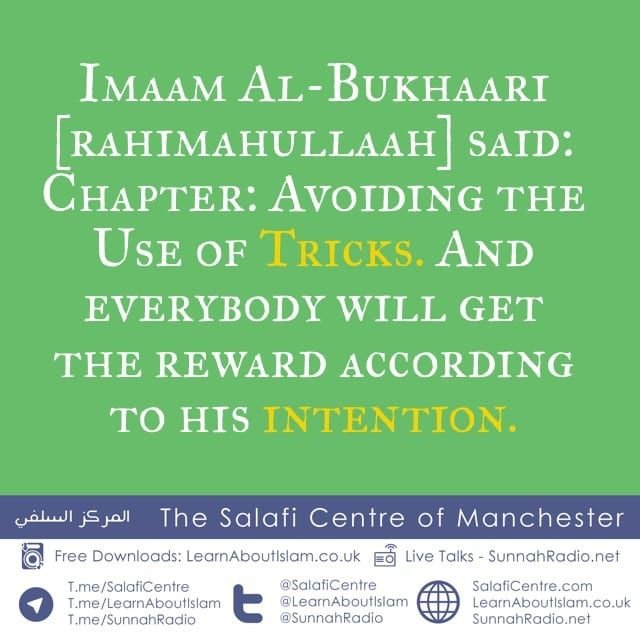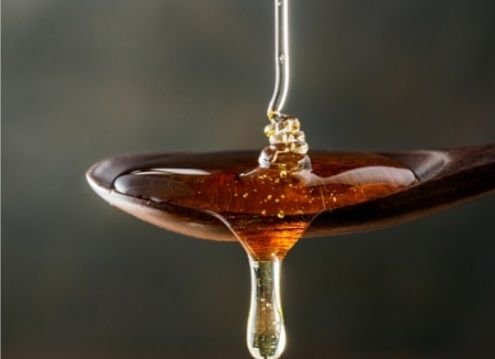[1] Murad Al-Jazaa’iri and Abu Usaamah- [Two Obstinate Followers and Shelterers of Ahlul BIdah] – And the Verdict of Shaikh Rabee and Shaikh Ahmad An-Najmi Against Them
In The Name of Allaah, The Most Merciful, The Bestower of Mercy
The Followers of a Mubtadi
Al-Allaamah Zayd Bin Haadi al-Madhali (rahimahullaah) said:
The people of desires and misguidance are (categorized into) those who are followed and those who follow. Indeed, those who are followed are the ones who set up the various principles of innovation and call to their innovation and misguidance, and they will carry their burden of sins and the burden of the sins of those whom they misguided without knowledge, as it is clearly stated in the Qur’aan and the Sunnah. As for the followers of a leader from amongst the people of desires, then in most cases they are of two categories:
The First Category: Those who possess knowledge, but they harbour evil intentions. So they yield to Satan, desires and the urge of the evil soul. They follow the people of misguidance and oppose the callers to guidance (in that which) Allaah sent His Messenger Muhammad (sallal-laahu-alayhi-wasallam) with.
The Second Category: Their share of knowledge is little, so the people of desires take advantage of them and they become (part) of their group. They convince them that what they call them to is the manifest truth and that what their opponents are upon is falsehood. And they convey to them a huge (number) of affairs that resemble the truth but are falsehood in reality, in order to deceive them and submerge them into misguidance. [1] End of quote
So here we have both Murad and Goldie as staunch, persistent and vile shelterers of Ahlul Bidah. Murad utilizes every opportunity to defend Hajoori Al-haddaadi Al-Mubtadi and attacks those who unveil Al-Hajoori’s bidah and misguidance. On the other hand, Abu Usaamah is well known for his defense of Ali Al-Halabi Al-Murji al-Mubtadi and his attacks against Salafiyyoon.
And what is amazing is that even though Murad and Goldie are at loggerheads due to their divergent paths of misguidance, however the two innovators they shelter and defend (Al-Halabi and Al-hajoori) are united against the Mashaayikh, such as Shaikh Ubaid, Shaikh Rabee, Shaikh Ahmad An-Najmi, Shaikh Muhammad Bin Haadi, Shaikh Abdullaah Al-Bukhaari and others. Rather Ali Al-Halabi al-Murji al-Mubtadi paid a visit to Yahya al-Hajoori Al-Haddaadi al-Mubtadi. [2]
So these two innovators unite against the Mashaayikh of Ahlus Sunnah and their two followers (Goldie and Murad) are from the most zealous and obstinate in their defense of these two innovators. Murad and Goldie do the same dirty job, but they are at loggerheads. Murad hates Goldie because he believes that Goldie is a Hizbi and upon Tamyee, but on the other hand he is upon the path of Yahya Al-Hajoori Al-Haddaadi Al-Mubtadi. Al-Halabi, Goldie, Al-Hajoori and Murad are all upon misguidance and that is why Shaikh Rabee (may Allaah preserve him) and Shaikh Ahmad An-Najmi 9rahimahullaah) have both issued their verdicts.
Shaikh Rabee (may Allaah preserve him) said: Al-Hajoori is more evil than the Haddaadiyyah and the ideas of the Kharijites have penetrated him and his followers. [3]
The Shaikh said about Murad Al-Jazaa’iri: ‘’Warn against Mourad Jaza’iree from Manchester: That he speaks ill of Shaikh Ubaid & Shaikh Bukhaaree & defends Hajooree.’’ [4]
As for Ali Al-Halabi, his affair is well known, for he innovated before Al-Hajoori and was declared a Mubtadi by Shaikh Rabee and others.
As for Abu Usama is not only well known for defending Al-Halabi Al-Murji Al-Mubtadi, but he is also well known for defending Abul Hasan Al-Maribi Al-Ikhwaani al-Mubtadi. Shaikh Ahmad An-Najmi (rahimahullaah) was asked about Goldie:
Question: “O Shaykh Ahmad we have with us in America a man called Abu Usaamah who is considered to be from the Du’aat, he aids and supports Abul-Hasan and he calls some noble Salafi brothers ghulaat (extremists), muqallidah (blind followers), and muhqiboon (the people whose religion is the religion of the one they blindly follow), so what is the legislated position from this man and how should we deal with him?
Response:
موقفكم منه كموقفكم من أهل البدعة , أعرض عنه و اتركه
“Your position with him is the same as your position with the People of Innovation. Turn away from him and abandon him. [5]
And to this day the misguided and obstinate shelter of Al-Halabi (Goldie) and the misguided and obstinate shelterer of Al-Hajoor (Murad) have both continued upon their compound ignorance and blatant misguidance. So we leave them with the following statements of the Salaf as a reminder, so that the reader realizes the severity of what Murad and Goldie are upon. Murad supports and elevates Al-Hajoori Al-Haddaadi al-Mubtadi and Goldie supports and elevates al-Halabi Al-Murji Al-Mubtadi, but Imaam Sufyaan Bin Uyaynah (rahimahullaah) said:
”Every person of bidah is debased.” And he stated (concerning the statement of Allaah): [وَكَذَٲلِكَ نَجۡزِى ٱلۡمُفۡتَرِينَ- Thus do We recompense those who invent lies] that it (applies) to every inventor of lies and innovator (in the religion) until the day of judgement.” [Hilyatul Awliyaa 7/28]
Imaam Fudayl Ibn Iyaad (rahimahullaah) said: Had the innovator humbled himself to the Book of Allaah and the Sunnah of His Prophet, he would not have followed his innovation; but he is amazed with his views, so he follows what he invented. [AdhTadzkirah Fil Wadh: page:97]
It is well known that both Al-Halabi and Al-Hahjoori are afflicted with self-amazement because they enter into issues above their level and end up innovating and they wage war against the Kibaarul Ulama who unveil their wicked innovations. However Murad and Goldie prefer to aid innovators, who are well known for their wicked innovations and slanders against the scholars of Ahlus Sunnah. We ask Allaah to guide them and their followers or protect us from their misguidance. Aameen.
————————————————————————————–
[1]Source: Al-Ajwibah Al-Athariyyah Anil Masaa-il Al-Manhajiyyah, Khamsoona Su’aalan Wa-Jawaaban: page: 18-19:]
[2]http://www.alhajuri.com/articles/fgmqweb-it-is-related-that–al-maribee-and-al-halabee-met-with-yahya-al-hajuri-recently-in-saudi-arabia.cfm
[3]http://www.alhajuri.com/articles/wudqlwq-shaykh-rabee-al-hajuri-is-worse-than-the-haddaadiyyah.cfm
[4]http://salaficentre.com/2013/10/shaikh-rabee-warns-against-mourad-al-jazaa-iri-e-mail-shaikh-hajoori-fanatic/
[5]http://www.salafitalk.com/threads/1216-A-Response-to-the-Deceit-of-Abu-Usaamah-Khalifah-and-His-Lying-Tongue











